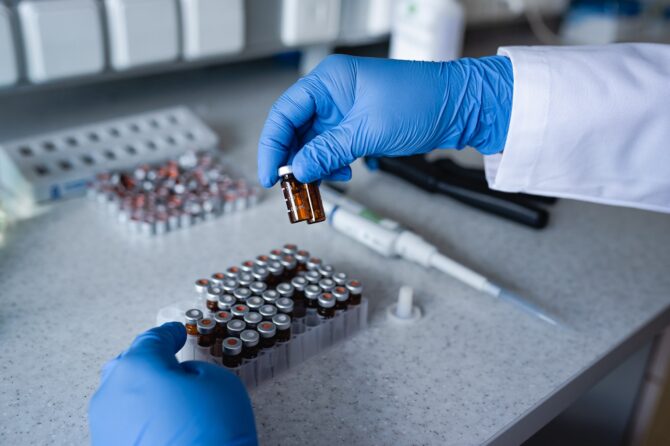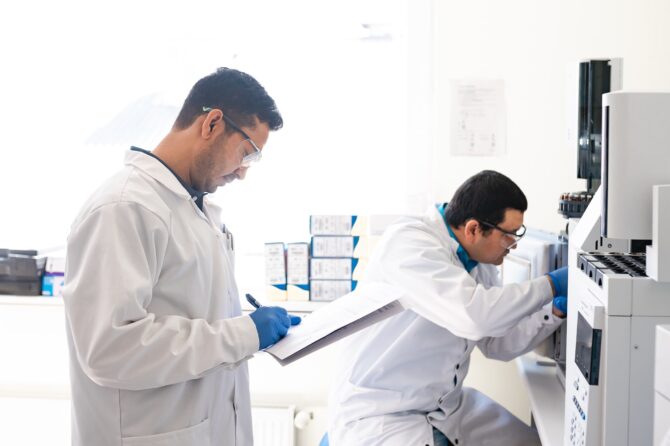
Blog


What are inactive pharmaceutical ingredients?
Inactive pharmaceutical ingredients (IPIs) are ingredients found in medication that do not directly affect the treatment of a disease or condition. While they may not be active, these components can still have an impact on the overall effectiveness of a drug. Understanding IPIs is important to ensure that your medications are working as intended. What do IPIs do? Inactive pharmaceutical ingredients come in many forms and serve a variety of purposes. For example, some are used as fillers and binding agents to help make tablets more consistent in size and shape. Others, such as colorings, flavorings, and preservatives, may be
Read more
Pharmaceutical compliance
Pharmaceutical compliance is a crucial part of the drug development process. It includes the processes and activities undertaken by a pharmaceutical company to ensure that its products meet all the applicable regulatory requirements. What is pharmaceutical compliance? Pharmaceutical compliance refers to the process of ensuring that a product or service meets all applicable regulations before it can be released to patients. This includes everything from making sure that the ingredients are properly sourced to ensuring that manufacturing processes meet stringent quality control standards. Compliance also applies to marketing materials, labeling requirements, and advertising regulations. Companies must ensure that their products
Read more
Medicine shortage: actions taken in Estonia and EU
Lately the shortage of medicines and health products has become an important topic everywhere around the world. Health professionals from European countries, as well as from Canada and US have been warning about potential medicine shortage. In the end of December such effect were clear in Estonia too when antipyretic syrups were nowhere to be found. At the same time doctors needed to find alternative treatments for patients in need for some specific antibiotics since they were also short in supply. Causes of shortages The supply chain disruption in pharmaceuticals is actually nothing unprecedented. However, the past few years have
Read more
CMC in pharma
Chemistry, Manufacturing and Controls (CMC) is a critical component of the drug development process. CMC in pharma is responsible for ensuring that the drugs being developed are safe, effective and high-quality. What is CMC? CMC stands for Chemistry, Manufacturing and Controls. It’s a term used in pharma to refer to various procedures involved in developing, producing and testing pharmaceutical products. CMC also includes processes such as identification of raw materials used in production, establishing standards of quality control and specifications for finished products. Furthermore, product stability testing, verifying manufacturing methods and equipment used in production. The main purpose of CMC
Read more
GMP for APIs
Good Manufacturing Practice (GMP) is a set on important requirements of the drug manufacturing process. It is a system for ensuring that active pharmaceutical ingredients (APIs) are produced safely, consistently and in compliance with relevant regulatory standards. What is GMP? GMP stands for Good Manufacturing Practice and refers to a set of guidelines that must be followed when manufacturing APIs. These guidelines are designed to ensure that the production process meets a certain level of quality control, safety and consistency. They have been developed by regulatory bodies such as the U.S. Food and Drug Administration (FDA) and the European Medicines
Read more
What is an Active Pharmaceutical Ingredient (API) in pharma?
Active Pharmaceutical Ingredient, or API, is the chemical or compound found in drugs and medications that produce their intended therapeutic effects. They are the main active ingredients of a drug and typically make up between 40-90% of the total mass of a pill or capsule. What is an Active Pharmaceutical Ingredient? An Active Pharmaceutical Ingredient (API) is the component in a drug that produces its effects. This can be either a chemical compound or a combination of compounds. An API may be composed of one single compound or multiple compounds working together to produce the desired effect. For example, aspirin
Read more